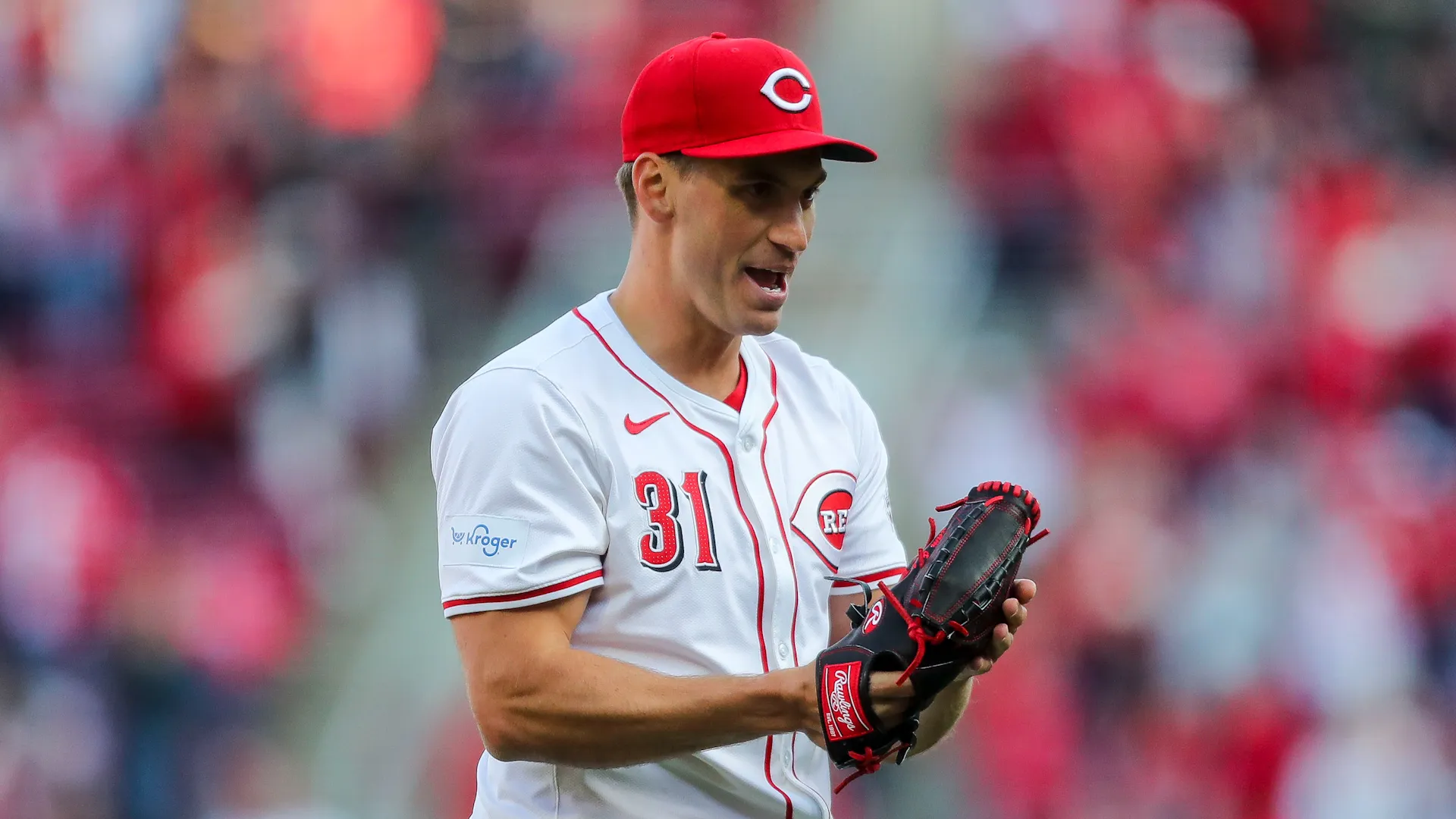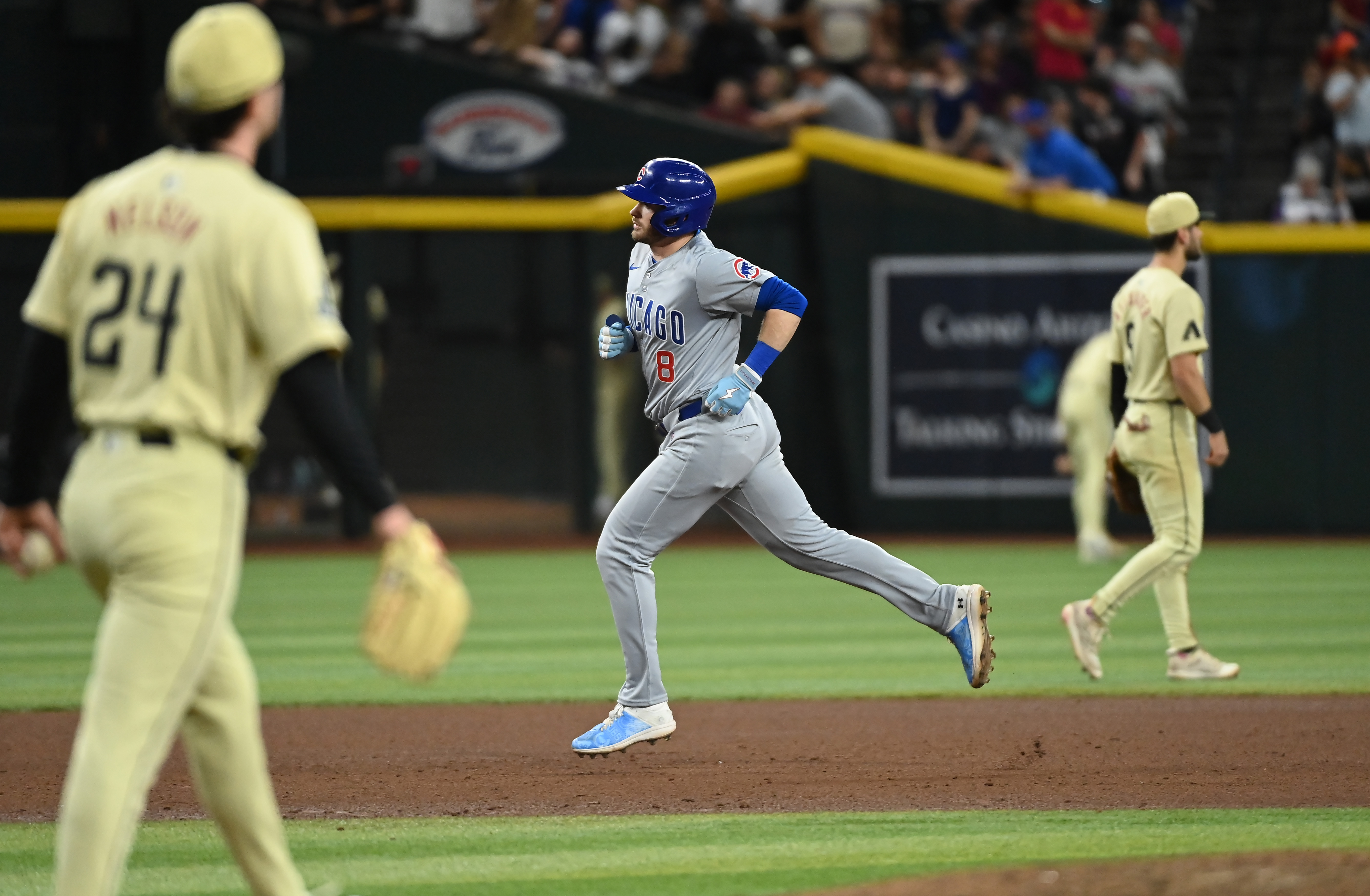MESA, Ariz. – Kris Bryant has led a charmed baseball life – Golden Spikes Award winner, Arizona Fall League MVP, consensus minor league player of the year, two-time All-Star, Hank Aaron Award winner, National League Rookie of the Year and MVP and World Series champion – all before his 25th birthday last month.
So, no, the Cubs superstar doesn't see the need for any dramatic overhaul to a sport that's desperately trying to connect with Bryant's demographic and keep up at a time when iPhones are killing everyone's attention spans and the entertainment options are endless.
"I love the way it is," Bryant before Wednesday's workout at the Sloan Park complex.
Major League Baseball commissioner Rob Manfred essentially fired a warning shot during Tuesday's Cactus League media event at the Arizona Biltmore, threatening to unilaterally impose pace-of-play changes – think pitch clock, limited mound visits, new strike zone – for the 2018 season if the players' union doesn't cooperate.
The first reported difference is the traditional four-pitch intentional walk turning into a dugout signal, which seems to be more of a cosmetic change than an actual efficiency measure.
"You're in the box, you want to force someone to make a pitch," said Bryant, who remembered Anthony Rizzo’s 10th-inning matchup against Cleveland Indians reliever Bryan Shaw. "Just the World Series, for example, when 'Rizz' got intentionally walked. There were a couple that were low. What if the ball got away? That's huge. Especially in that type of situation – Game 7 of the World Series – you want to put pressure on the pitcher any way you can.
"It seems like it's not stressful at all, but any time you're not throwing at full effort for a pitcher, it seems like there's a chance that we could do damage on that."
MLB
That's actually Manfred's agenda in an age of grinding at-bats, specialized bullpens and defensive shifts – trying to create more action and eliminating some of the dead air more than simply cutting the length of games by a few minutes.
"The game's been the same to me since I was young, so I don't think there's anything wrong with it," Bryant said. "I think that's what makes our game great. It is a long game and we play 162 games a year and there's more strategy involved with it. I think it could be a slippery slope once you start changing all these things.
"The people you really need to ask are the fans. The diehard fans are going to be the ones who oppose more changes. They're the ones who pay to watch us play. Those are the opinions that you need."
In using this power in the new collective bargaining agreement as leverage, Manfred is looking at the future of a $10 billion industry, insisting the game isn't broken when more than 75 million people visited major-league stadiums last season.
But even Cubs manager Joe Maddon – who’s usually open-minded and in tune with these kind of big-picture ideas – doesn’t get the pace-of-play focus.
"I'm not privy to all the reasons why it's so important," Maddon said. "It just appears to be important for the people in New York. My job is not to make those decisions. My job is to ultimately make the Cubs play well again, etc., so there are certain things that I don’t quite understand.
"If I had more interior information maybe you could be more supportive of it. On the surface – I've talked about it in the past – I don't really understand the pace-of-game issues because I don't really pay attention to that. I'm just locked into managing the game. The nine innings go 2 hours and 15 minutes, or 3 hours and 20, as long as you win, I don’t care.
"That's where I come from, but there's something obviously larger than that that's really causing a lot of these discussions. Again, from my office, I don't necessarily know what that is. But I do know new normals may occur."


